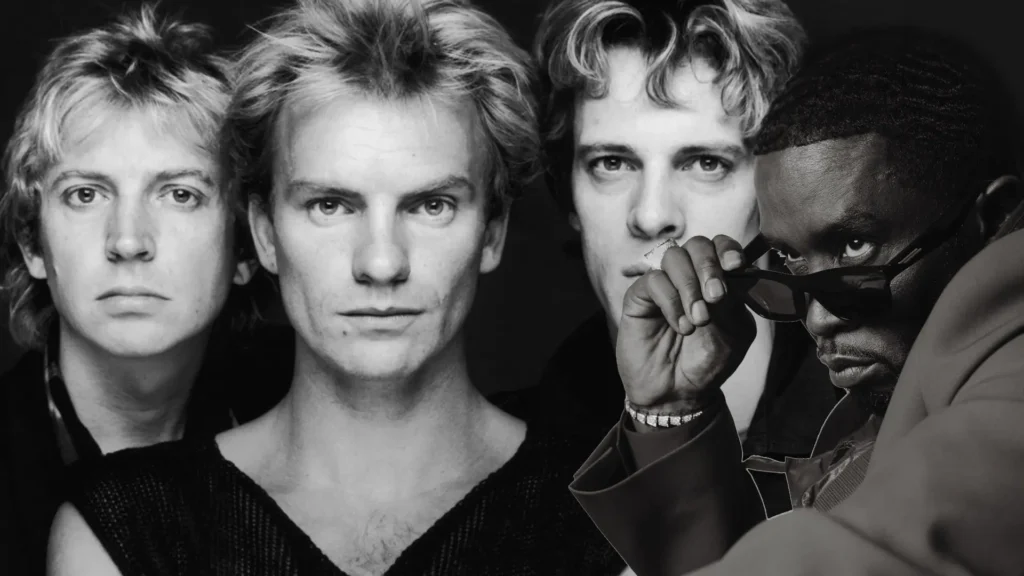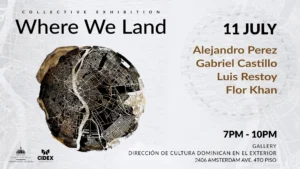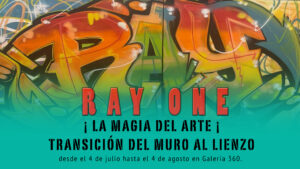by Juan Butten
For over three decades, I have been a loyal fan of The Police and their charismatic leader, Sting. I clearly remember the first time I heard “Every Breath You Take,” a song that, although it deals with heartbreak, has always resonated with me deeply. However, when Puff Daddy, now known as Diddy, released his version, “I’ll Be Missing You,” in 1997, I must confess I didn’t entirely understand the need for a cover.
Still, music has the power to connect people through emotions, and this is something both songs exemplify in a striking way. Personally, I have always leaned towards the original version. I’ve never fully agreed with the reinterpretations that rap artists make of bands from other genres. In my view, music is enriched much more by creating new compositions than by covering classic tracks.
“Every Breath You Take,” written by Sting, is a ballad that captures the essence of love and heartbreak. Since its release in 1983, it became an instant hit, reaching number one on the Billboard Hot 100, where it remained for eight weeks. This song not only won the Grammy for Song of the Year in 1984, but it has also established itself as one of the most iconic anthems in pop music.
Diddy, for his part, released “I’ll Be Missing You” as a tribute to his friend and industry colleague, The Notorious B.I.G., who was murdered that same year. The song includes a sample from “Every Breath You Take” and features Faith Evans and 112, becoming a tribute that resonated deeply within the hip-hop community and among Biggie’s fans. Listening to it, one cannot help but feel the emotional weight it conveys—a sincere reflection of loss and love.
As Andy Summers, the guitarist of The Police, mentioned, Puff Daddy may be prone to “borrowing” classic rock songs in his work, but that doesn’t mean we have to like it. When I first heard the song, I didn’t know what to think. In fact, it was my son who pointed it out: “Dad, there’s a girl on the radio playing for you!” I entered his room, and upon hearing the radio, I thought, “That’s me, what the hell is this?”
The song not only borrowed the melody from the hymn “I’ll Fly Away,” but it also won a Grammy, which left Summers perplexed. He explains, “It sampled my guitar, and that was the basis of the entire song. Stewart and Sting aren’t in it. I was walking through Tower Records, and the damn thing was playing over and over. It was very strange.”
Of course, The Police are not the only classic rockers whose music Diddy has reinterpreted. He also collaborated with Jimmy Page from Led Zeppelin on “Come With Me,” using the music from “Kashmir,” raising the question of why these artists would want to be part of such projects. Chuck D from Public Enemy even criticized that song, calling it “a damn farce.”
In terms of commercial success, “I’ll Be Missing You” has surpassed the original. It debuted at number one on the Billboard Hot 100 and remained in that position for 11 weeks, becoming one of the best-selling singles of the 1990s. To date, it has sold over 5 million copies in the United States, while “Every Breath You Take” has sold approximately 3 million. Without a doubt, Diddy’s tribute has become a cultural phenomenon.
Both songs have been recognized in the awards arena, though in different contexts. “Every Breath You Take” won the Grammy for Song of the Year and has been included in the Grammy Hall of Fame. Meanwhile, “I’ll Be Missing You” won a Grammy in 1998 for Best Rap Performance by a Duo or Group, in addition to receiving multiple nominations, solidifying its place in hip-hop history.
The cultural impact of both songs is significant, yet distinct. “Every Breath You Take” has become a timeless classic, used in numerous films and TV shows, which speaks to its enduring relevance. “I’ll Be Missing You,” on the other hand, is considered an anthem within hip-hop culture, symbolizing loss and tribute, marking a key moment in the history of the genre.
While Sting’s “Every Breath You Take” is a recognized masterpiece in the history of music, Sean Combs’ “I’ll Be Missing You” has proven to be a superior commercial success, with more sales and a strong emotional connection to its audience. Both songs have their place in the vast musical landscape, but in terms of impact and contemporary recognition, Diddy’s version takes the lead.
In the end, each song tells a story that resonates on different levels, enriching the legacy of music and reminding us of its power to connect our lives. And now, after all the recent scandals surrounding Sean Combs, I wonder if we will ever listen to his version with the same intensity as in the years when it was so successful. How much should we separate the artist’s life from their art? Only time will answer that question.









